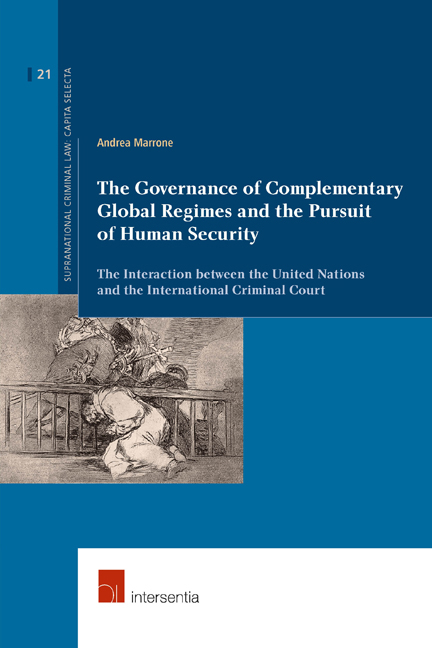 The Governance of Complementary Global Regimes and the Pursuit of Human Security
The Governance of Complementary Global Regimes and the Pursuit of Human Security from PART III - THE HUMANITARIAN ESCALATIONS OF LAST RESORT AND THEIR GOVERNANCE IN THE FIELD OPERATIONS
Published online by Cambridge University Press: 15 December 2017
PRELIMINARY REMARKS
The DRC has the size of Western Europe and gained formal autonomy from Belgium in 1960. Since the country's decolonization the current updated empirical data on governance show that the human development index is lower now than in 1975 and the GDP pro capita roughly one-third of what it was back in 1960. The World Bank has currently put the DRC as fourth worst-administrated State after Somalia, Iraq and Myanmar. The DRC has been classified as the second most unstable country after the Sudan, and the fifth most corrupted African State. An estimated 5.4 million people have died because the war and its after-effects since 1998. In spite of the end of the civil war since 2002, millions of Congolese continue to die each year. Arguably considered as the world's most deadly crisis after WWII, its intra-state instability receives more attention than many of the past and recent crises such as Bosnia, Iraq and Ukraine. Since its independence the DRC has been the subject of cross-border incursions, including the interference of neighbouring States in its domestic affairs. The illegal exploitation of natural resources has emerged as the primary means of financing the civil war including the illicit trade of corporations. Such intrusions demolished any institutional heritage in the fragile domestic apparatus of the country. The internal political transition in the DRC is characterized by extreme violence and crime to retain power on civilians, territories and resources. The last elections in 2011 marked the second vote held since the Kivu Conflict that killed more than five million people. The electoral process was characterized by voting difficulties as some voting materials arrived late, or did not arrive at all. The presidential election involved 11 candidates, although the victory of President Joseph Kabila received claims of intimidation and vote-rigging. With regard to the delicate situation affecting the civilian population including the concerns related to democratic transitions in the country, this case study puts forward important elements to be taken in consideration by the decision makers on reconfigurations, cooperation standards and interactions, including the alternative between ‘comprehensive’ and ‘narrowly focused’ international mandates able to complement with each other on the ground.
To save this book to your Kindle, first ensure [email protected] is added to your Approved Personal Document E-mail List under your Personal Document Settings on the Manage Your Content and Devices page of your Amazon account. Then enter the ‘name’ part of your Kindle email address below. Find out more about saving to your Kindle.
Note you can select to save to either the @free.kindle.com or @kindle.com variations. ‘@free.kindle.com’ emails are free but can only be saved to your device when it is connected to wi-fi. ‘@kindle.com’ emails can be delivered even when you are not connected to wi-fi, but note that service fees apply.
Find out more about the Kindle Personal Document Service.
To save content items to your account, please confirm that you agree to abide by our usage policies. If this is the first time you use this feature, you will be asked to authorise Cambridge Core to connect with your account. Find out more about saving content to Dropbox.
To save content items to your account, please confirm that you agree to abide by our usage policies. If this is the first time you use this feature, you will be asked to authorise Cambridge Core to connect with your account. Find out more about saving content to Google Drive.